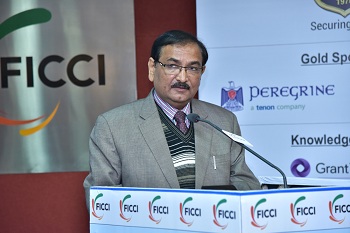In the wake of the recent Rs 22.50 crore cash van heist, senior Delhi Police officials have recommended private security agencies to invest in specialised training for guards. “Policemen who are on field, keep interacting with private security guards and most of the times they are found to be clueless, which shows that the industry needs effective training mechanism,” said Joint Commissioner of Police (East) Sanjay Benniwal. “Most security guards do receive some training, but it doesn’t reflect in the way they ultimately perform. The private security industry should think about investing in an institute which train guards to enhance their skills and performance,” said Benniwal.
The Joint Commissioner of Delhi Police was speaking at the Private Security Industry Conclave organised by FICCI. Citing examples from the investigation of the Rs 22.50 crore cash heist, he said that security agencies should have standard procedures, with minimum scope for subjectivities, which should not be breached at any cost.
“It didn’t matter if the cash van guard had a gun, for it always needs proper training to fire a round. But why should the police be under scanner in such cases, when the shortcomings were to be owned up by you (concerned security agency),” said Benniwal. Special Commissioner of Police (Traffic) Muktesh Chander, who was also a special invitee at the conclave, said that he has no issues outsourcing some traffic management work — especially prosecution for violations — to a potential public-private partnership unit, provided the manpower in the private security counterpart is well-trained.
Additional Secretary (Home) of the Government of NCT of Delhi, O P Mishra, who was also a part of a panel discussion at the conclave, said that security agencies should go for in-house trainings. “Presently there are only six certified training agencies in the city, and total number of private security guards exceeds 4 lakh,” Mishra said. The training should also be uniform across all states, so that trained guards from Delhi can seek employment elsewhere too and vice-versa, Mishra said.








